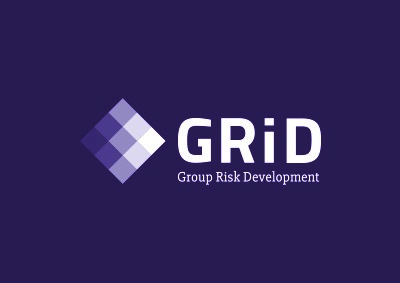Press release 11 July 2017.
GRiD, the industry body for group risk, is highlighting that SMEs, advisers and insurers should not ‘assume knowledge’ on each other’s behalf, and that a truly open conversation will be significantly advantageous for both employers and their staff.
To ensure benefits and accompanying services are optimised, GRiD gives some examples of the types of discussions SMEs should be having with their adviser and insurers about group risk benefits (employer-sponsored life assurance, income protection and critical illness):
How are group risk products relevant to my business?
In today’s age, there is no reason why every size of business can’t provide some kind of group risk financial protection for its staff. There are a huge range of supportive services that come along with a group risk policy, and insurers are constantly developing new ones, so it’s especially important for SMEs to know what group risk can do for their organisation.
What is the longevity of a recommended product?
SMEs need to be open in sharing their organisations’ future strategy and how they believe recruitment and retention fits within it. If all parties have a good grasp of how the organisation’s employee demographics may develop, advisers will be able to select the product structure that is right for now and for the foreseeable future.
The lifecycle of a typical employee
It makes sense for SMEs to share information about the lifecycle of a typical employee – how they are recruited; where they are likely to have come from; how long might they stay, etc. This is to ensure that group risk products dovetail with the way in which their business operates.
Health, wellbeing, & safety, and other benefits
Many employers encourage their staff to get fit and to stay healthy. Many will have excellent health and safety procedures in place. They may also offer additional supportive services and benefits (e.g. Private Medical Insurance, access to stress counselling, etc). It is a good idea to share these facts with group risk providers, as it could give underwriters a more positive view, resulting in more favourable pricing.
What else comes with a group risk policy?
In addition to financial support, there are many other supportive services available within group risk products.
For employees, these can include an Employee Assistance Programme (EAP), preventative support, stress management, second medical opinion and more. For SMEs, support can be invaluable, including HR and employment law advice, telephone support for difficult situations, mediation and more. Group risk support is also moving forward to encourage better health behaviours, for example giving access to GP services, health tracking apps and mental health support for staff.
Can I save money elsewhere?
SMEs should welcome advisers undertaking a full audit of existing products and services – there are so many touch points with group risk (such as Private Medical Insurance, Occupational Health, Employer’s Liability, Personal Accident) that it’s worth checking out where products might overlap (and don’t need to be paid for twice) or any gaps that need to be filled. It’s also worth making sure that you’re not paying separately for a service that you could get for nothing under your group risk policy/policies (such as an EAP).
How can we embed all of this?
Taking time to embed group risk and all its support into procedures, trigger points, protocols and communications is well worth the effort. Your adviser and insurer can help you with this. SMEs that use group risk services every day, as they are intended, will derive the greatest benefit from their spend.
Katharine Moxham, spokesperson for GRiD said: “It’s important that all parties are really forthcoming with information to ensure that the buying process is as informed as it can possibly be.
“Group risk products are often the unsung heroes in an employee benefits package but they don’t have to be – when SMEs, advisers and providers work together in ensuring the right choice of provision, the positive effects have the best chance of being appreciated throughout a business.”
– Ends –
For further information please contact:
Sharon Mason
SMUK Marketing and PR
smason@smuk.org.uk
Mob: 07747 611773
Land: 01252 843350
Katharine Moxham
Spokesperson for GRiD
Katharine.moxham@grouprisk.org.uk
Mob: 07887 512508
Notes for editors
About GRiD
Group Risk Development (GRiD) is the industry body for the group risk protection sector, promoting the value to UK businesses of providing financial protection for their staff, enhancing their wellbeing and improving employee engagement. Our membership includes insurers, reinsurers and intermediaries who have a collective wealth of experience built over years of operating in the group risk protection market. Under the chairmanship of Lee Lovett, CEO of Ellipse, GRiD aims to promote group risk through a collective voice to Government, policymakers, stakeholders and employers.
GRiD works with government departments and regulators involved in legislation and regulation affecting group risk benefits, and with other organisations involved in the benefits and financial protection arenas. GRiD also seeks to enhance the industry’s standing by encouraging best practice and by participating in industry-wide initiatives such as the professional qualification in group risk managed jointly with the Chartered Insurance Institute.
GRiD’s media activity aims to generate a wider awareness and understanding of group risk products and their benefits for employers and employees.
GRiD’s dedicated spokesperson, Katharine Moxham, provides expert media comment on a full range of group risk issues.
Follow Katharine Moxham on Twitter @KMoxham


